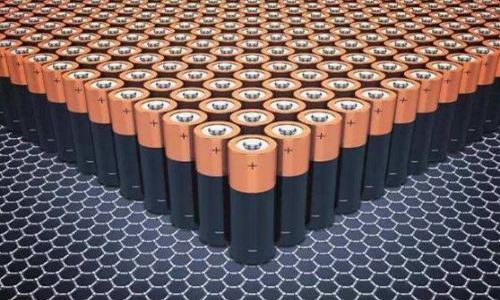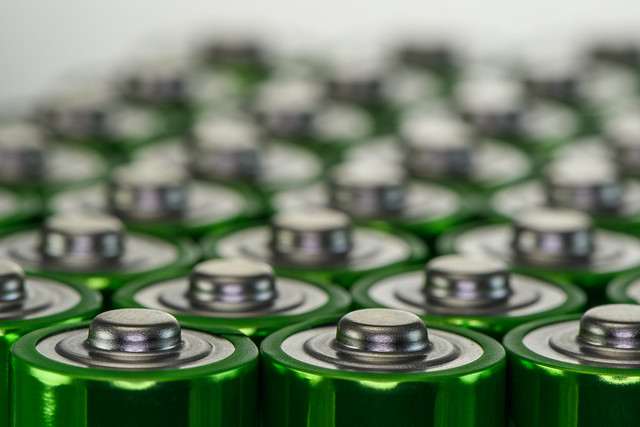Best Lithium-ion Car Battery – Choice and Cost
APR 02, 2020 Pageview:1273
Ever since their introduction into the automotive industry, lithium-ion batteries have proven to be an exemplary power source. They have even powered the development of the industry and the invention of superior and eco-friendly electric cars. For decades this battery has provided more than enough energy to sustain the evolution of technology as well as the automotive industry.
Is there a better car battery than lithium-ion?
There has been a never-ending debate on whether or not there could be a better battery than the lithium-ion cell. However, even with this ongoing debate, lithium-ion continues to widen its gap in the lead for the best battery technology available in the market. Scientists are also focusing on improving or upgrading this battery technology because they have shown renowned prowess as a power source and therefore, replacing them may not be an option just yet. Lithium-ion battery technology may not be disposed of just yet as we have merely tapped into the potential that its other versions have.
How do you choose a good lithium-ion car battery?
Choosing a good lithium-ion car battery isn’t as simple as one might think. It involves getting to know all the facts and features about the specific kind of battery that your car needs and making the right choice. Also, everyone works with a budget when it comes to buying a battery for their vehicles and this is no exception for lithium-ion cells because they tend to be expensive. Not only should you consider the needs hat your car and pocket can accommodate, but also those of the environment you drive in.
Furthermore, keep in mind that lithium-ion batteries designed for vehicles are not universal as seen in the way a truck with a bigger engine would need a bigger battery than a small saloon car. Proper research is required before making any purchase concerning these batteries and the following are a few ideas to help you get started.
1.Check on your budget for the battery
Lithium-ion batteries can be quite expensive. Therefore, to know the best battery that would fit your needs as well as those of your car; you need to figure out how much money you are capable of spending. Normally, a regular lead-acid battery would not be more than 100 – 200 $ price range. Some of these cells can even be bought at a lower price point and especially the low-grade batteries that only need to sustain your car for a short period.
However, if you’re interested in performance as well as higher energy densities and stronger resilience to environmental conditions, you will have to spend more. You cannot compare the performance of a lithium-ion battery to that of a low-cost lead-acid cell and even though you wouldn’t have to overspend, you may need to prepare yourself for a substantial price tag.
2.Pick the right capacity and size battery
Lithium-ion batteries come in various sizes and capacities. For you to choose the best battery for your car, you will need to keep track of the exact size and capacity that your vehicle uses. This will allow you to buy the most appropriate battery that will not bring about measurement issues during installation or provide a smaller energy density that what your car requires. You can look into your car owner manual for the details about such information.
Alternatively, you can extract the existing battery from your car and take the appropriate measurements. Once you got the data, you can look for the best retail store that provides the batteries at some of the most suitable offers in the market.
3.Performance levels
There are many lithium-ion batteries for cars designed by different battery manufacturers. The performance of the battery is one of the most significant factors one has to consider for their vehicle needs. You can check your owner’s manual for the minimum cranking amp value that the vehicle needs and get batteries with a higher cold cranking amp rating.
Lithium-ion batteries are far much better than the old lead-acid batteries and thus you may find than with their small sizes, they are capable of supplying large energy densities. Also, these cells have little to no maintenance allowing them to lower the cost of running your vehicle on the road.
4.Other Variables
There are also a few variables that you would need to consider before making your purchase. The environment in which you drive; and the magnitude as well as usage frequency of electronics in your vehicles will also help you make a better decision. A lithium-ion battery with a higher CCA rating will perform better in extremely cold places while that with a lower rating runs best in hot areas. For heavier vehicles, a higher CA rating is more suitable as they require more cranking amps.
How much is a lithium-ion car battery?
There is no fixed price for lithium-ion batteries because different manufacturers have different price tags for their batteries. Also, there are many overlying factors that determine the price of a lithium-ion car battery. Some of these factors include lifespan, capacity, warranty, and many others. You will have to be specific on the details of the desired lithium-ion battery to know the exact amount that it costs in the market.
However, researched analysis shows that the standard price of an entire automotive lithium-ion battery pack lies within 500 – 600 $ per kilowatt hour. However, the prices of batteries has generally declined and therefore, the price of lithium-ion car batteries today can fall up to about 200$ per kWh. As years go by, the prices of these batteries are expected to go even lower than normal due to increased supply levels. Generally, lithium-ion batteries are considered expensive and especially those designed for vehicles.
Conclusion
Some people are still convinced that there is a better technology than lithium-ion when it comes to vehicles. However, study and research has proven that lithium-ion batteries are capable of handling all the energy requirements needed for cars. At the moment further studies are being carried out to try and upgrade the battery rather than replace it therefore leaving lithium-ion to remain the most suitable vehicle battery in the market.
- Prev Article: Carry-on Lithium Batteries – Care for Your Batteries
- Next Article: Is it bad to charge a lithium ion battery overnight?
Leave Message
Hottest Categories
-
Hottest Industry News
-
Latest Industry News












